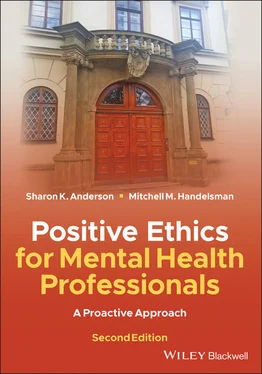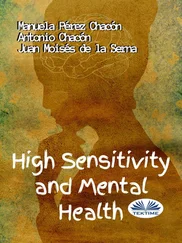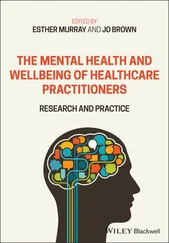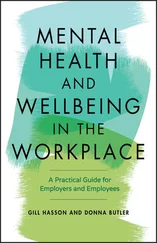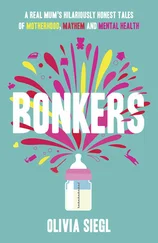Mental health professionals use a variety of terms to describe what they do—the two major terms being psychotherapy and counseling. In the interest of clarity and brevity, we will use the terms counseling, psychotherapy, and therapy interchangeably.
Developing and Exploring Your Moral and Professional/Ethical Identity
No matter where we are in our career and our development, we can uncover, explore, and articulate deeper aspects of our being … the core of our identity. Our core includes our motivations, needs, values, emotions, social identities, and personal morals (Anderson, 2015; Blasi, 1984).
Our professional/ethical identities likely develop out of our core in a cyclical (spiral!) fashion rather than in a straight line. We discover parts of our core identity, and that influences how we view the profession’s culture and our commitment to ethics. In turn, the experience of our profession’s ethics and culture influences who we are at our core.
Sharon recalls two examples that highlight this spiral of personal and professional influence:
Many years ago an advisee scheduled an appointment with me. I thought our discussion would be about her upcoming classes. I was very wrong: She came into my office and announced she no longer saw herself fitting well with the counseling profession’s ethical culture—she was going to pursue a different career where her personal values and ethics were a better match with the profession. Through exploring what was in her core, she was clear that some of her personal values were non-negotiable. She was very committed to some of her personal values and morals and didn’t know how she would keep those from being part of her work. For example, she didn’t agree with abortion and knew that as a high school counselor this might be a frequent topic of discussion. She didn’t want to give up her values or lay them off to the side while working with people. She didn’t want to impose them either. Her personal ethics were naturally influencing her professional/ethical identity.
Another example was where professional ethics influenced a change in the personal. In class, a student shared his recent conversation with family members about his work with some students on campus. He kept his comments to his family at a vague level. His understanding and sensitivity to confidentiality had been heightened due to the recent and ongoing conversations about confidentiality in the ethics class. As a family member pressed for more detail about his work, he stood his ground, letting his family member know that, although he recognized the importance of open communication with them, which continued to be his value, he also had begun to incorporate an aspect of his professional self—he had recognized his ethical obligation to honor the privacy of those he served on campus. From this experience he began to think more about how conversations with family members about other family members may need to change to honor his values of confidentiality and privacy.
Our professional/ethical identities evolve over time, but no matter where we are, we can improve our understanding and exploration of the core elements of our identities. The benefits of having a well-thought-out and well-articulated professional/ethical identity include providing better psychotherapy and counseling to clients, preventing burnout, and experiencing a more fulfilling and productive career.
We and our students have found it useful to think of our profession—our mansion—as a new culture to which we need to adapt. The culture of psychotherapy, like any culture, has its own values, customs, language, traditions, rules for appropriate and inappropriate behaviors, and ways to express gratitude, respect, and reverence. When we live and move around in our mansion, the culture of psychotherapy, our ordinary moral sense will take us only so far (Kitchener & Anderson, 2011). As we engage in the process of ethical acculturation, we are actively creating, tweaking, and expressing our professional identity.
Our adaptation to the culture of psychotherapy, which we call ethical acculturation (Handelsman et al., 2005), involves awareness of all the rooms and furnishings in the mansion—the personal and the professional—and the staircase of ethics. What is your sense of right and wrong professional behavior? Who have you been throughout your life, in the many types of relationships of which you have been a part? How do you integrate the ethical traditions, values, rules—in short, the culture of psychotherapy—with your own moral intuitions, values, and backgrounds?
These tasks—professional/ethical identity development and ethical acculturation—might take you by surprise or seem unnecessary. You might be thinking that you already have enough of a personal foundation or moral compass to be an ethical practitioner. For example, (a) you are very motivated to listen and to help people, (b) others tell you that you are a nice person, and (c) you have never been convicted of a felony. These statements may all be true; however, there are two major reasons why we need to engage in these tasks intentionally and mindfully. First, psychotherapy is a complex profession—the therapeutic relationship includes a unique combination of roles and behaviors. It can also include different contexts and stakeholders. Second, human beings are prone to imperfect cognitive and emotional processing—we often find it hard to (a) identify the ethical components of a professional decision, (b) judge accurately what a right ethical action is, and/or (c) implement our ethical judgments, especially under stressful conditions.
Practicing Ethics in the Real World: Tripping Points and Balancing Acts
In our dialogues throughout this book, we will pay attention to practicing ethics in the real world, not just studying theory or platitudes. If ethical decisions were that easy, we wouldn’t need courses, books, consultants, regulatory agencies, licenses, hearings, malpractice courts, and so forth. But our professional mansion is big, complex, and constantly under renovation. Thus, ethical judgments and actions are difficult at best—and there are conditions in the real world that add to the difficulty.
The spiral staircase of ethics is sometimes treacherous, in part because human beings are not naturally good at making choices and decisions. We are prone to imperfect cognitions (think: uneven stairs), especially under conditions of uncertainty (Kahneman & Tversky, 1973)—which includes the practice of psychotherapy. We are also imperfect when emotions are involved—which they always are! Thus, our tendencies toward imperfect cognitions are magnified by emotional involvements (like slippery stairs) that include conflicts of interest, liking or disliking (of colleagues, clients, the “system,” our lives, etc.), and other emotional biases. As if that weren’t enough, situational factors can act like turning off the lights on the staircase—they make our climb more difficult, and they exacerbate our cognitive and emotional tendencies. We can be blind to our own blind spots.
With apologies to Gladwell (2000), we call these factors tripping points . They can make it hard to develop and maintain a professional identity, stay positive, make good ethical decisions in the moment, and choose good acculturation strategies.
No matter what cultural groups we identify or have grown up with, we are often constrained by a limited worldview (Sue et al., 2019). Part of our exploration will be looking at the cultural filters that human beings naturally use that distort, devalue, or deny experiences of people (colleagues, clients, etc.) who are different from us in important ways. Psychotherapy itself includes values and traditions that may make more sense in some cultures. For example, many Western psychotherapeutic approaches value individuality and independence. Other worldviews value interdependence and seeking the best for the community. We aren’t saying that one is better over the other. We are saying that our cultural lenses, and we all have at least one, filter our ways of seeing and understanding our clients, their world, and their experience of the world.
Читать дальше
